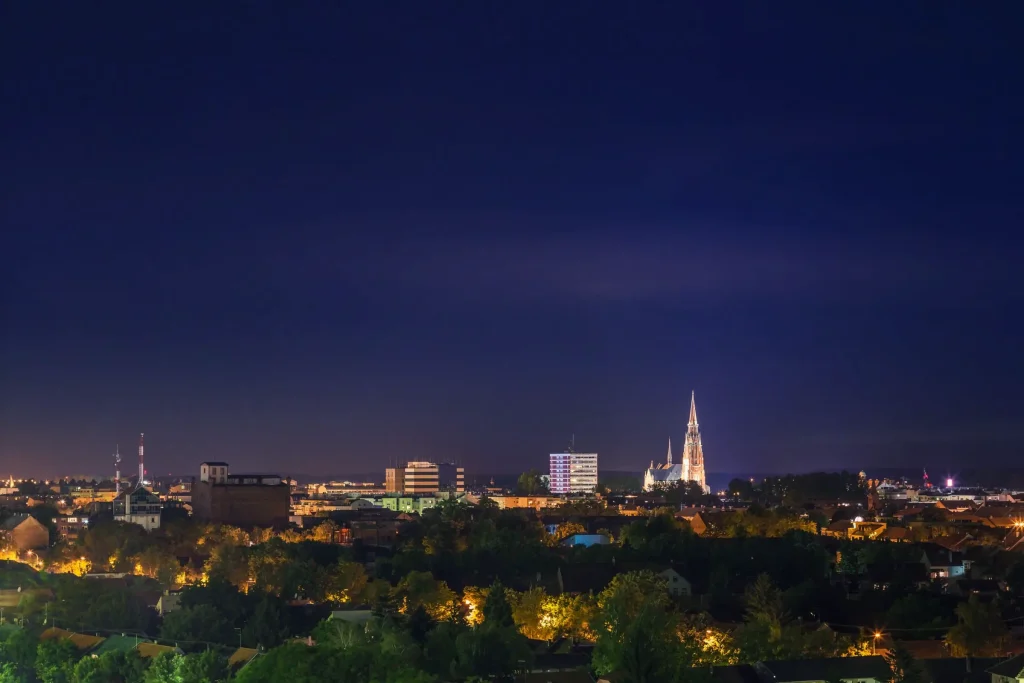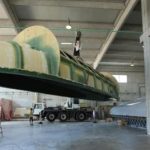As Poslovni Dnevnik/Lucija Spiljak writes, associations form an important tool in community development, but also in encouraging the empowerment of individuals through volunteer or work experience, given that in Croatia, associations are often both employers and creators of new content.
”They shouldn’t be underestimated, and they should be given concrete support and encourage their development,” stated Darija Walter, president of the Osijek PLANtaza Association, which was founded back in 2014 by a group of enthusiasts with the desire to start positive stories in their often overlooked city.
From the very beginning, they have been focused on promoting a sustainable way of life, ecology, creativity and art, as well as engaging in socially responsible business, thus reviving the small but very strong and creative Osijek scene.
The Osijek PLANtaza Association currently boasts 40 members, half of whom are active, and on the eve of their seventh birthday, they have more than 140 implemented projects and activities under their belt, they also continue to cooperate with a large number of civil society organisations, creative individuals and entrepreneurs, and strengthen their own forces with new members.
Urban interventions in Osijek
Darija says that the first projects of the Osijek PLANtaza Association were various creative and ecological workshops, the ReArt festival and the Papergirl project, which they adapted to their needs and created a new concept of event/socialising with an emphasis placed primarily on exchanging creativity in different locations.
When they founded the association, they were supported by several other existing Osijek associations – the Shine Dance Studio, the Slama Association and the Slap Creative Development Association – with which they still cooperate and continue to launch new projects, but the cooperation has expanded beyond Osijek and even beyond Croatian borders. An example of that is the Vucedol Interreg project, which they;re currently implementing with partners from Budapest and Pecs (Hungary), as well as the Museum of Vucedol Culture (Croatia).
“Cross-border cooperation on the Interreg project will only further strengthen our capacities and give us a spring in our steps for some new ideas, especially with organisations that share our views on doing responsible business and having a sustainable view of the future. Fortunately, more and more individuals are launching healthy and sustainable stories through actions via associations or independently on the development of a sustainable lifestyle that is now, more than ever, needed because of the possible challenges we as humanity are facing and will face.
We’ve recently been developing projects that are directly related to the development of tourism potential, especially in terms of the development of urban culture, such as the Urban Intervention project. The project includes several activities aimed at reviving forgotten and abandoned buildings.
It’s aimed at questioning spatial relationships through a combination of architecture and street art and the interaction of the renovated buildings and the local community. The best example of this is the oldest tram station in Osijek, built back in 1926, which became an open-air gallery with the Urban Intervention project, within which three academic artists have presented themselves so far.
Urban interventions have triggered a continuity of creative changes in space such as outdoor galleries, mosaics, painted benches or power boxes. These may be small things, but they also require organisation and a detailed implementation plan. Educational projects such as the Green School and the MOSS project (mobile solar station) have so far been successfully implemented in 11 primary schools throughout the City of Osijek.
Our first EU Golden Year project aims to achieve cooperation with the pensioners of the City of Osijek through the implementation of 200 activities, social and intergenerational programmes, and our good cooperation with partners will only further enrich the lives of pensioners who need special support due to the situation caused by ongoing coronavirus pandemic.
We’ve also launched some new projects such as Take Care of the Mask, My Opportunity and Urban Osijek, which we believe will achieve its results and leave a good mark on the the City of Osijek and the wider county,” stated Darija.
Excellent cooperation with young people
The goal of the Zbrini project is to advocate for a city without disposable plastic, the My Opportunity project should further empower young people in terms of mobility and participation in Erasmus programmes, while the Green School project will introduce students from five primary schools to young farmers and permaculture food farming.
Darija believes that the consciousness of individuals began to change for the better after the pandemic struck, but that at the same time, the consciousness of the business and public sector is waking up too. New generations understand the benefits of renewable energy much better, and the awareness of young people, as Darija says, is most evident through the implementation of the MOSS project.
“Students and young people want to be involved in project activities and so far we’ve enjoyed some very nice collaborations, especially in schools that conduct civic education as an elective subject. We try to offer interesting and creative solutions to the youngest in our society through educational programmes, because that’s the only way we can expect better generations to come after ours,” stated Darija, adding that the Osijek PLANtaza Association’s cooperation with local authorities is decent enough, but that it could be better, especially in terms of more concrete communication.
The Osijek PLANtaza Association is currently implementing the activities of the EU Golden Year project, and will participate in the Osijek Summer Night, where they will organise a Dance for pensioners along with numerous other events. They also carry out programmes of emotional development and planting a therapeutic garden in the yard of the local retirement home, outdoor exercises, and even computer literacy workshops.
“In any case, we have a working summer and autumn ahead of us, as well as a celebration of our seventh birthday, which we hope will be possible,” concluded Darija Walter.
For more, follow Made in Croatia.









